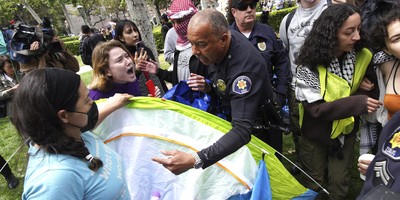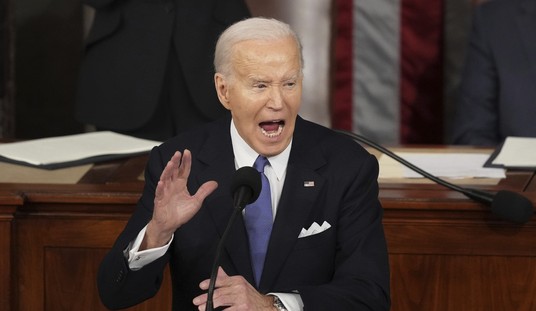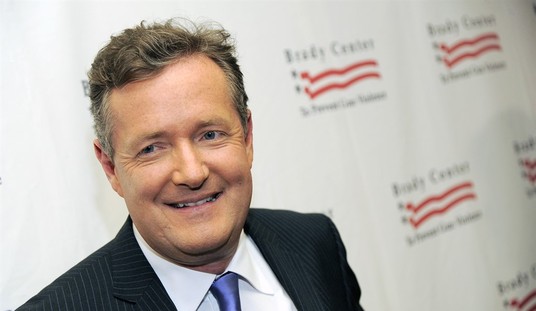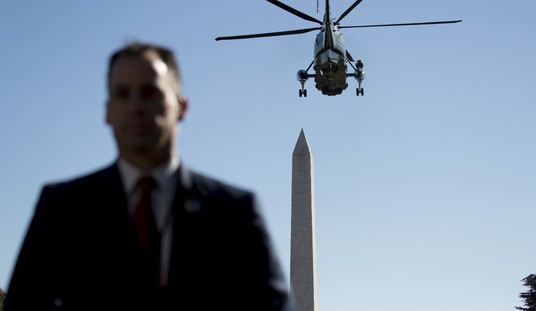The GOP’s presidential nominee John McCain (R.-Ariz.) and Democratic presidential candidate Hillary Clinton (D.-N.Y.) squared off on Iraq policy against the backdrop of a high-profile hearing to receive testimony from senior Iraq officials Tuesday.
In the run-up to the hearing, McCain said removing troops from Iraq too early could threaten security at home and Clinton said in a television interview “the surge hasn’t worked.” Both of these charges played out in more dramatic form during a Senate Armed Services Committee hearing, a committee both Clinton and McCain are members.
At a campaign stop in Kansas City Monday McCain said it was the “height of irresponsibility” and a “failure of leadership” for Clinton and Sen. Barack Obama (D.-Ill), also campaigning for the Democratic nomination, to promise to they would withdraw troops from Iraq upon being elected President.
As top Republican on Armed Services committee, McCain delivered an opening statement to Army General David H. Petraeus and Ambassador Ryan C. Crocker. In it, he strongly criticized those supporting a premature withdrawal from Iraq.
“Should the United States instead choose to withdraw from Iraq before adequate security is established, we will exchange for this victory a defeat that is terrible and long lasting. Al Qaeda in Iraq would proclaim victory and increase its efforts to provoke sectarian tensions, pushing for a full scale civil war that could descend into genocide and destabilize the Middle East,” McCain said. “Iraq would become a failed state that could become a haven for terrorists to train and plan their operations. Iranian influence would increase substantially in Iraq and encourage other countries to seek accommodation with Tehran at the expense of our interests. And American failure would almost certainly require us to return to Iraq or draw us into a wider and far costlier war."
Recommended
As a lower-ranking member of the Armed Services committee, Clinton was allotted just six minutes to speak and pose questions to the General and the Ambassador. She used part of that time to respond to McCain.
“Suggestions have been made leading up to this hearing and even during it, that it is irresponsible or demonstrates a lack of leadership to advocate withdrawing troops from Iraq in a responsible and carefully planned withdrawal,” Clinton said. “I fundamentally disagree. Rather, I think it could be fair to say that it might well be irresponsible to continue the policy that has not produced the results that have been promised time and time again at such tremendous cost to our national security and to the men and women who wear the uniform of the United States military.”
Clinton maintained President Bush’s decision to send a “surge” of troops to Iraq has not produced the needed political results. Because she is unsatisfied with political progress, Clinton told ABC’s Robin Roberts, “Clearly the surge hasn’t worked” in a television interview earlier that morning.
In her question and answer session with Clinton charged, “Even General Petraeus as recently as three and a half weeks ago has acknowledged that the Iraqi government has not made sufficient political progress.” Clinton made this statement based on an article published in the Washington Post.
Petraeus corrected Clinton.
“What I said [in the article] was that no one was satisfied with the progress that had been made, either Iraqis or Americans, but I then went on and actually ticked off a number of the different areas in which there had been progress and talked about the different laws that Ambassador Crocker has rightly identified in a number of other areas in which, in fact, there's been progress, although not satisfactory progress,” Petraeus said.
“That was the thrust of what I was getting at there” Petraeus said.
The full article is available here.
In his opening statement Ambassador Crocker expressed disappointment Iraqis have not moved faster towards political reconciliation, but listed successful passage of a pension law, accountability and justice law and an amnesty law as signs of encouragement. He also said, “An electoral law is now under discussion that will set the parameter for elections. All major parties have announced their support for elections, which will be a major step forward in Iraq’s political development and will set the stage for national elections in 2009.”
He also noted Iraq’s growing economy and their increased spending on reconstruction efforts.
Petraeus said he anticipated the Iraqis would spend $8 billion towards this in 2008 and $11 billion in 2009.
Armed Services Committee member Sen. Joe Lieberman (I.-Conn.) chastised Democrats for taking “see no progress, hear no progress, speak no progress” approach to the officials’ testimony.
“I wish we could come to a point to have agreement on the facts,” the senator who was essentially disowned by the Democratic Party because of his support of the war fumed.
“Let’s be honest about this,” he said. “The Iraqi political leadership has achieved a lot more political reconciliation and progress since September than the American political leadership has.” In recent weeks Lieberman traveled with McCain and fellow Armed Services committee members Sen. Lindsay Graham (R.-S.C.) on a congressional delegation to Iraq, Europe and Israel.
Obama will have the opportunity to question Petraeus and Crocker in a separate Foreign Relations Committee hearing late Tuesday afternoon.
























Join the conversation as a VIP Member